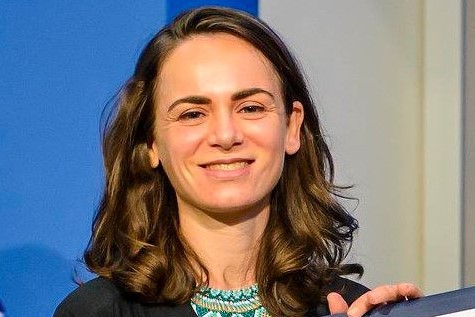Entrepreneurship and Migration
(ESR 4; Maastricht University)
Research plan: The mobility of talent has become a significant determinant of economic growth and development over the past two decades, and will increase in importance in the future. The reasons are threefold. First, demographic changes across advanced and emerging economies have resulted in one the one hand an aging population in wealthy but indebted European countries (and also an emerging country such as China) and a predominantly youthful (but under-employed) population in developing regions such as Sub-Saharan Africa and the Middle East and North Africa. Second, the globalization of labour and capital markets have made the identification of opportunities across international borders much easier than before, and the exchange of information for pushing and pulling talent across borders much more immediate. Thirdly, climate change and the reaching of a tipping point in the world’s urban population (more than 50% of the world’s population now live in urban areas) is likewise generating push and pull factors that will see increasing migration. Moreover, the economies of scale that modern technology can achieve together with the agglomeration advantages from more dense populations and under-employed populations points to the greater importance of entrepreneurship as a social and economic determinants than perhaps ever before. The key issue is whether more migration – and more mobile talent – will result in innovative entrepreneurship that can address the complications from rapid migration, urbanization, and whether innovative entrepreneurship will indeed be stimulated to make use of the opportunities that migration create. If policies, systems and infrastructure do not take the (changing) relationship between migration and entrepreneurship into consideration, the result could be that mobile talent end up allocated towards survivalist, non-productive or even destructive entrepreneurial activities, including gangsterism, corruption, resource exploitation, crime and conflict. The main research questions are the following: to what extent do the three trends in migration and globalization create a conducive or limiting environment for transnational entrepreneurship? How should policies on the national and international level be reconsidered to provide for the appropriate incentives to encourage innovative, high-productive forms of entrepreneurship to emerge?
Summary of research findings: Motivated by the growing interest in migration as an economic and social phenomenon, this thesis explores several aspects of the relationship between migration and occupational choice. Consisting of four self-contained essays, findings suggest that, while migration might develop entrepreneurial abilities, self-employment tends to be more of a temporary choice when market-supporting institutions are lacking. Turning to those who stay behind, the return of migrant household members appears to alter the time allocation of non-migrating members, spouses, even once migration is complete. Last, publicly provided healthcare is shown to condition migration, directly or indirectly, through effects on the labour force.
Status: finished. Dissertation successfully defended on 22 June 2018 at Maastricht University.
Researcher: Clotilde Mahé (profile page; personal website)
Clotilde is currently (since September 2019) a postdoctoral researcher/research associate at the Centre for Research in Economics and Management (CREA) of the University of Luxembourg.
She defended her PhD entitled Essays on Migration and Occupational Choice on June 22, 2018. Under the supervision of Melissa Siegel and Wim Naudé, Clotilde studied the interactions between migration and occupational choice, in an attempt to unpack migration as a learning process contributing to labour trajectories. Her doctoral research was funded by the European Union Marie Curie Actions Initial Training Network Transnational Migration, Citizenship and the Circulation of Rights and Responsibilities (TRANSMIC) (FP7-PEOPLE-2013-ITN) (ESR 4).
Prior to joining MU, Clotilde obtained a Bachelor Degree in Applied Economics at Université Paris Dauphine (UPD, Paris IX, France), in 2011; a Masters of Science in Economic Development and Policy Analysis at University of Nottingham (UoN, United Kingdom), in 2012; and worked in non-governmental organisations in Dakar, Senegal, and at a UN specialized agency in Bangkok, Thailand.



